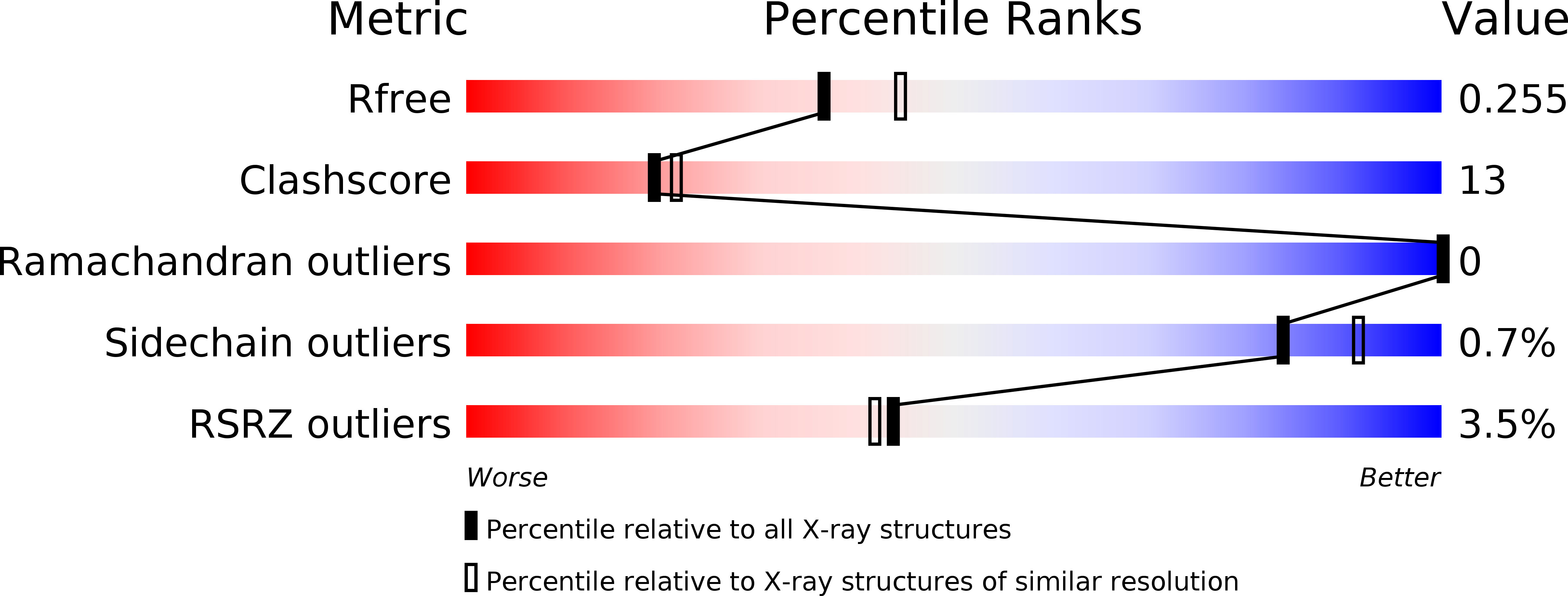
Deposition Date
2011-06-08
Release Date
2012-03-07
Last Version Date
2024-03-13
Entry Detail
PDB ID:
3B0D
Keywords:
Title:
Crystal structure of the chicken CENP-T histone fold/CENP-W complex, crystal form II
Biological Source:
Source Organism(s):
Gallus gallus (Taxon ID: 9031)
Expression System(s):
Method Details:
Experimental Method:
Resolution:
2.20 Å
R-Value Free:
0.26
R-Value Work:
0.20
R-Value Observed:
0.20
Space Group:
P 31 2 1


